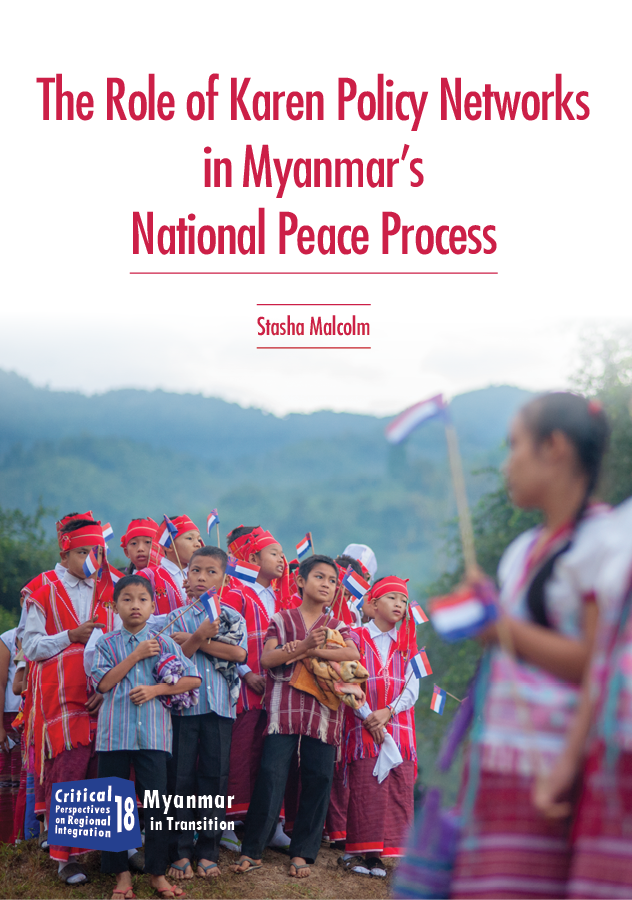The KNU has become accepted as a de facto government within Karen State. Political tension has led to factionalism within the KNU, creating a sub-system in which various governance actors attempt to raise their policy concerns at the national level. Current literature analyzes Karen politics as they happen within top-level negotiations on the NCA, overlooking the impact of policy opponents that do not have direct access at that level.
This study illustrates the involvement of individual Karen actors, vis-à-vis the KNU, in Myanmar’s peace process. It explores to what level Karen governance actors believe they can leverage change at the negotiation level, and what forms of rationality — including language, conduct, and discourse — they mobilize within Karen policy networks to advocate for their policy views. Various imaginaries, both political and developmental, are created by Karen governance actors through shared perceptions to understand and engage in the peace process. Acting through various policy networks, Karen policy opponents attempt to impact national level negotiations in favor of their imaginaries.
Publication date: October 2020
Available online here
- THEME
- Ethnic Politics

